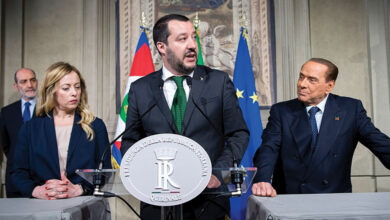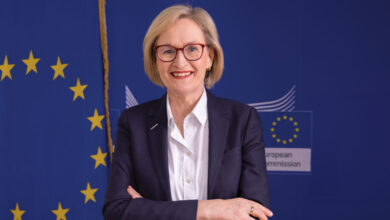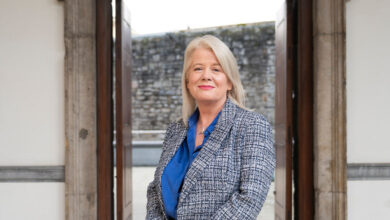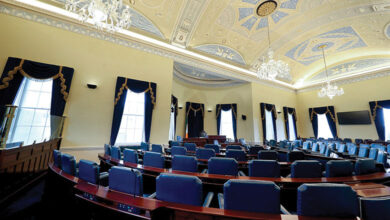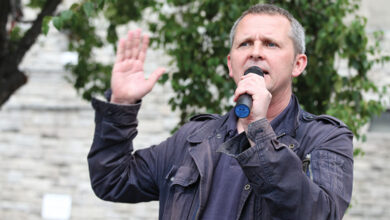Climate Challenges await incoming Government
 Climate change may have not have been a focal point in the recent general election but some of the first decisions the new Government faces will shape Irish climate and energy policy for ten years or more writes Friends of the Earth’s Director Oisín Coghlan.
Climate change may have not have been a focal point in the recent general election but some of the first decisions the new Government faces will shape Irish climate and energy policy for ten years or more writes Friends of the Earth’s Director Oisín Coghlan.
It wasn’t that I had wild expectations.
I know that general elections are normally dominated by ‘pocketbook’ issues as the Americans call them. But still, even with dampened expectations, the general election campaign was dismal from the point of view of debate on climate, energy and environment policy.
The context had suggested it might be otherwise. The election was called less than two months after the landmark Paris agreement where 196 countries agreed to an international framework for climate action. In that time Ireland had been wracked by a series of intense winter storms that caused severe flooding and pointed to what our future looks like in a warming world.
So why did our political leaders disappoint so badly?
Politicians never tire of telling me that very few people mention climate change on the doorsteps. Organisations like Friends of the Earth, Trócaire and An Taisce try to change that but there’s no evidence that there was a significant breakthrough.
Our answer to politicians though has always been clear, very few people were mentioning banking regulation on the doorsteps in 2002, or even 2007, but voters would have been very grateful if politicians had responded to evidence of an overheating economy and had acted to deflate the bubble and prepare Ireland for global shocks. Likewise now, the evidence of an overheating planet is unequivocal and we must act to prevent the carbon bubble from becoming a climate crash.
It was a short election campaign that put the media focus squarely on the party leaders rather than policy spokespeople. Lots of issues got short shrift. Moreover, the evidence from the last TV debate, when Miriam O’Callaghan actually asked a question on climate change, is that the leaders of the four largest parties just don’t get climate change.
The most promising policy debate during the campaign was the RTÉ2 TV debate featuring Aodhán Ó Ríordáin, Eamon
Ryan, Mary Lou McDonald and Leo Varadkar among others. Their collective approach was refreshing compared to the four elders.
The biggest inhibitor of politicians taking a lead on climate change, however, remains the influence of vested interests. The Government’s most concerted efforts on climate change over the last five years has been to make the case to the EU that our 2020 targets are unfair and that our 2030 target should give special consideration to our agriculture sector’s expansion plans.
It is a high stakes gamble. If the Government doesn’t succeed in getting special treatment, then the taxpayer faces a large bill. Estimates vary but on our current emissions trajectory Ireland will face upwards of €2 to €3 billion in non-compliance costs for missing our targets over the next 15 years.
The clock is ticking. The EPA says we will overshoot our EU 2020 targets within the next 18 months. The outgoing government went through its entire five-year term without a climate action plan. The new climate law means that the Government has to produce one by the middle of next year and the independent Climate Advisory Council will publish its first report this year.
Big decisions are just around the corner: on fracking, the peat-fired power stations and Moneypoint, windfarm guidelines and on supporting community ownership of renewables. First up is the EU negotiations on our national target for 2030 to be decided in a matter of months.
Will the new government maintain the risky defensive crouch of its predecessor or rise to the challenges and opportunities for Ireland of a just transition to a zero carbon future.

